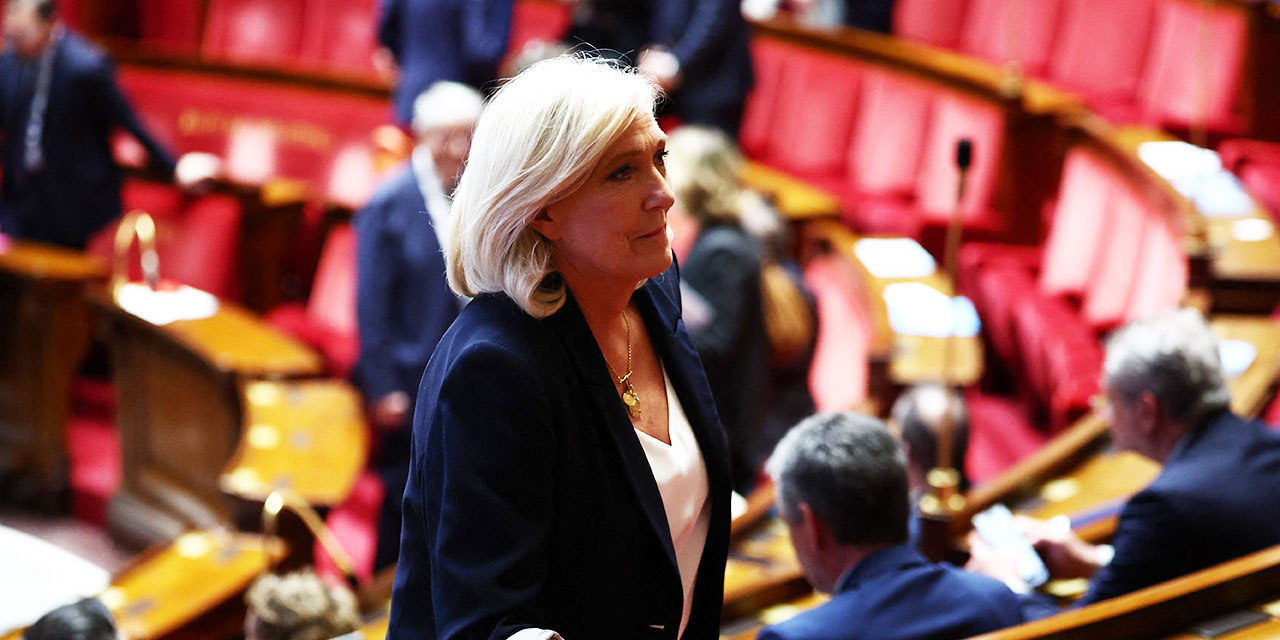The recent decision of a French court would, if taken as precedent, in effect legalize murder—provided that the act was committed in a state of temporary madness caused by intoxication with cannabis.
In 2017, Kabili Traoré, a Muslim of Malian origin, who had no previous psychiatric history but a long criminal record, with 22 convictions—including for robbery, attempted robbery, drug-dealing, and possession of illegal arms—climbed over the balcony of the flat of Sarah Halimi, a Jewish woman age 66, tortured her, and then threw her over the balcony to her death. Traoré appeared to be in a state of religious excitation, for he was heard to shout “Allahu Akbar” and “I have killed Shaitan” (Satan). There is no doubt that he was psychotic at the time, or that his psychotic state was precipitated by his use of cannabis.
The court acquitted Traoré of any crime because he was psychotic when he committed the act, sending him instead to a psychiatric hospital for 20 years. Its decision caused widespread public alarm, repugnance, and derision. But from the strictly juridical point of view, the court might have been right. According to the French criminal code, a man is not to be held criminally responsible if his “discernment”—his judgment—is abolished by a psychiatric or neuropsychiatric state. The code does not make voluntary intoxication an exception to this rule.
Of course, what constitutes the abolition of discernment or judgment is itself a question of judgment. Traoré knew, for example, that his victim was Jewish (she was the only Jew on the block, and he knew this in advance); he also knew that he was killing her. He must have had at least intermittent awareness of his illegal act, for at one point he shouted that there had been a suicide and that the police should be called. On the other hand, it is unlikely that he would have acted as he did had he not been psychotic.
The defense argued, moreover, that Traoré could not have known that using the drug would have the effect on him that it had on this occasion, and thus that he was not guilty of the crime for which he was charged. After all, he had been smoking cannabis since he was 15 without any psychotic episodes. Therefore, while his consumption of the drug was voluntary, the resultant psychosis was involuntary.
This was a shamelessly sophistic argument. If a man takes a drug illegally, he is surely responsible for all its effects on him, expected or unexpected, wanted or unwanted. But the court took the defense’s argument seriously.
French jurisprudence is very muddled and inconsistent on the question of cannabis intoxication. If someone causes a fatal accident while under the influence of the drug, it is regarded as an aggravating circumstance and not as an excusing or even mitigating one. Thus, intoxication with cannabis aggravates an accident but (on the basis of the recent rulings) excuses a murder: a peculiar doctrine, to say the least.
The court also deliberated on the question of whether the homicide was motivated by anti-Semitism—an aggravating circumstance, in French law—and concluded that it was. The defense argued that it was not, and that Traoré was anti-Semitic only because of his psychotic state. This would make a coincidence of the fact that his victim was the only Jew in the building. Not only is this contradicted by his antecedents, but it also disregards the fact that the content of people’s delusions reflects the culture, or subculture, in which they live. Indeed, it could hardly be otherwise: a seventeenth-century person suffering from paranoid delusions would not have complained of being followed by the KGB or the CIA. And, as Thomas De Quincey put it in 1829 in his Confessions of an English Opium Eater: “If a man whose talk is of oxen should become an opium-eater, the probability is that . . . he will dream of oxen.”
Traoré may be free in a few years, despite the court having sent him to a psychiatric hospital and sentenced him to surveillance for 20 years. If two independent psychiatrists conclude that he is no longer psychiatrically ill and poses no danger to the public, he could be released much sooner—and two psychiatrists will almost certainly make this determination well before the sentence expires.
The French news magazine L’Express, which has a very large circulation, asked: “Who will then supervise Traoré?” The answer, once he has left the hospital, is already known beyond reasonable doubt: no one. This is because such supervision is impossible. In fact, Traoré has already been able to obtain his drug of choice even within the high-security hospital in which he is held.
In any case, there should, in my opinion, be no question of supervising him once he is at liberty because there should be no question of him ever being at liberty. While he remains psychotic from the effects of cannabis—which can last a long time—he should be treated in the hospital. When he is better, he should be sent to prison, there to remain for the rest of his life, with no possibility of release.
In effect, the law and the judges in France have deftly handed over responsibility in the case to the medical profession, where it does not belong. The penal code should be adjusted so that the courts cannot do this again, and so that the effects of voluntary intoxication cannot be entered as a defense.
Photo: stocknshares/iStock





